Part Time Trading Made Easy Paul Singh

When I was 20, the first book I read on investing was "Buffettology".
It explains how the world's richest investors become successful in trading, Warren Buffet selects companies to invest in.
I was fascinated by how a man could be so much wealthy by simply picking the right stocks to hold for the long run. Who wouldn't?
After reading Buffettology, I was hooked.
I started researching all I could to make myself a great investor.
I read books on value investing and fundamental analysis. After a while, I notice the authors kept repeating these 3 elements…
- Ensure the company has more assets than liabilities
- Ensure revenue, net income, and cash flow are increasing each year
- Ensure the company has growth potential
Voila. The secret to become successful in trading!
The investor
Now:
Armed with my newfound knowledge, I was ready to pounce on the markets.
My first stock I bought was Sembcorp Marine in 2009 because it had solid fundamentals, and the markets were recovering.
I got long at $3.28 and told myself to hold this stock till the price doubles!
5 days later, I bailed out at $3.08.What a chicken I was.
Then I did a short reflection and concluded that it was my emotions that trigger this action of mine.
Not giving up just yet and with the markets making a bull run, I knew I had to get back into the game.
Being naive and ambitious I did more fundamental research and bought more companies, with margin.
Here's what I bought…
I went long Noble Group, Keppel Land and Sembcorp Marine with an initial outlay of $20,000.
In 2 months, I was up close to $10,000. But me being a fundamentalist, trying to emulate Warren Buffet to hold these stocks for the next 30 years, I held on.
At this point, I was feeling like a champion, with a knack for picking stocks. Even my broker was commenting that everything I touched turn to gold.
2 weeks later, my unrealized profits of $10000 vaporize into smoke. The Euro Debt crisis had hit the markets.
Now…
…I had nothing to show for but a stench of bitterness.
One moment I was feeling like Rock Balboa, the next I was Luke Skywalker when he realized Darth Vadar was his father.
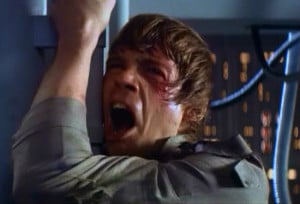
I am a fool. What was I thinking?!
Those phrases kept playing in my head over the next few weeks.
Eventually, I bailed out of all my positions when the price went further against me. I just couldn't bear the pain anymore.
A few months later after recovering from this mental trauma, I started reflecting once more. What did I do wrong?
After much brainstorming, I realized I had no plan for exits. So this led me to further research on stop loss, entries, and exits.
If you Google that long enough, forex trading websites would start appearing on your monitor.
And that's how I entered the trading arena…
The trader
So after my failed attempt at being an investor, I figured being a trader would better suit me.
I was immediately drawn to the fanciful charts and colorful indicators that beautify my screens. This beats crunching numbers and financial statements.
In the matter of days, I find myself drawn to trading more and more. It became my passion whereby I was spending more than 10 hours a day in front of the screen.
Everything started to make sense and trading didn't seem that difficult.
All I needed was:
1) A trading strategy
2) Risk management
And it could be found on trading forums, for free!
Why would I want to invest in a stock for years when I can buy and sell currencies in minutes!
Easy money is ahead of me, all I need to do is click my mouse.Or so I thought…
How to Become Successful in Trading?
The journey
The following series of events occurred while I was studying in university.
It was on Babypips where I was first exposed to a trading strategy.
I was looking for anything interesting and chance upon a thread teaching new traders like me how to trade.
The thread owner had a huge following and traders were worshiping him like a Demi-god.
Since I was new to trading and so many traders can't be wrong, I followed him religiously as well.
Bollinger Band
My first trading strategy was using Bollinger bands to buy low and sell high, and take profit at the opposite end of the bands.
On hindsight, it looked something like this…
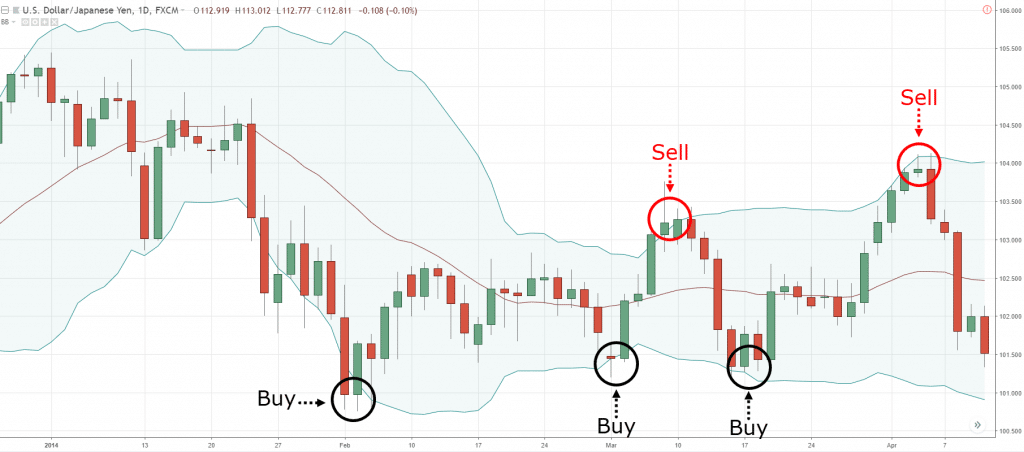 I thought this was the Holy Grail!
I thought this was the Holy Grail!
Every chart that was posted made money.
But it was only after I traded it myself did I realize that there was more than meets the eye.
I traded this for 6 months and lost money. I concluded this wasn't going anywhere and looked for another strategy. Sounds familiar?
"Price action" trading
After my failed attempt with indicators, I was feed with the notion that it lags the market, and that's why I wasn't profitable.
This then led me to trade raw price itself, the price action world.
This led me to Forex Factory where there's a thread dedicating to "price action" trading.
In fact, if you Google price action trading you will see many websites regurgitating similar content
You'd probably see something like:
- Identify support and resistance
- Wait for a pinbar or engulfing pattern to form at your level
- Enter and set your stop loss beyond the wick of the candle
- Target at nearest support or resistance with a minimum of 1 to 2 risk reward
In hindsight, it looked something like this…
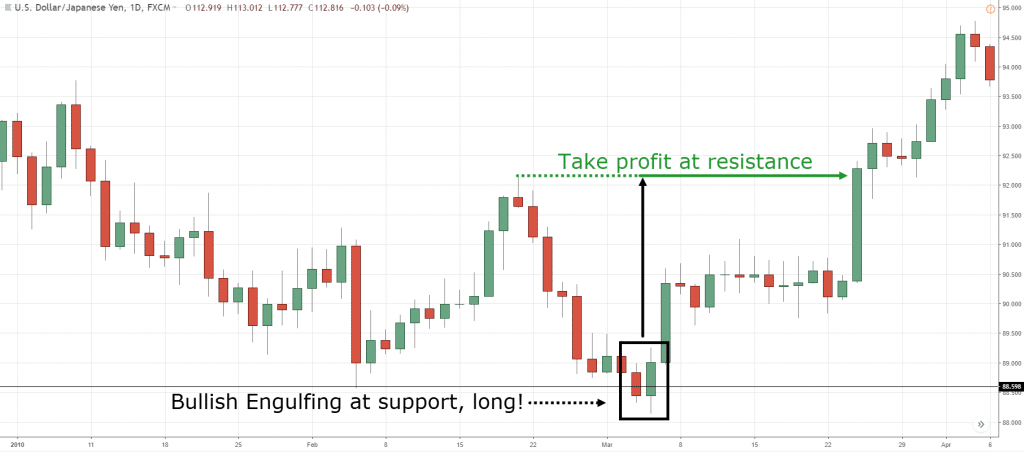 Among the different trading strategy I tried, I spent the most time and effort on "price action" trading.
Among the different trading strategy I tried, I spent the most time and effort on "price action" trading.
Reason being there are so many trading gurus out there teaching this method and they all have a huge following. They all can't be wrong right?
I was an ambitious naive trader who wanted to make millions of dollars. I couldn't possibly settle for one trading strategy.
Thus, another trading strategy I was trading concurrently was harmonic patterns.
Harmonic Patterns
The Harmonic Trading Strategy took me 6 months to figure out. I thought to myself that the more complex a strategy is, the more powerful it will be. How silly I was.
In essence, harmonic patterns are drawn by using the confluence of Fibonacci ratios and extensions. They have a few variations of harmonic patterns, like Gartley, Bat, Crab etc.
Personally, I find harmonic patterns to be the most beautiful thing on my charts. But I was in this business to make money and not draw beautiful patterns.
Example of a bat pattern…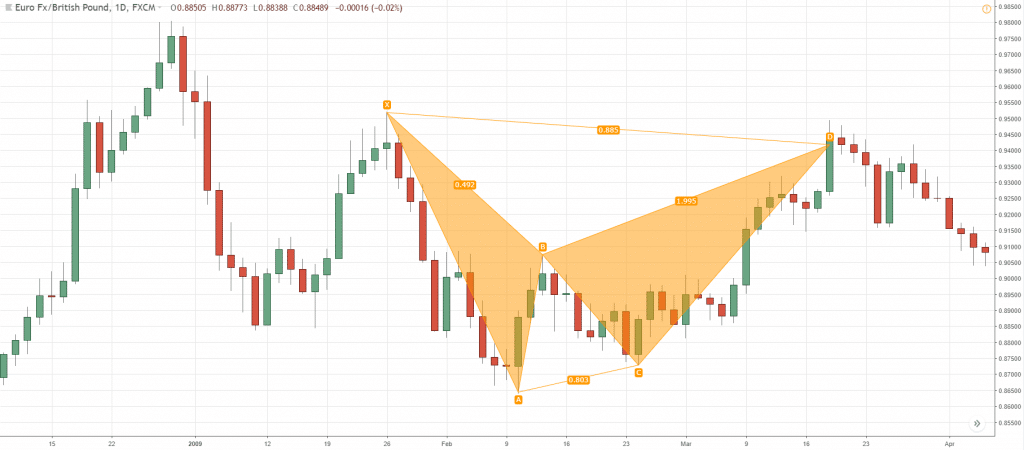
The cold hard truth
Numbers don't lie. And the reality was that I was a losing trader despite learning so many trading strategies.
From indicators to raw price action to harmonic patterns. Just name it, I probably would have tried it.
A drawdown of 50% after 3 years of trading…
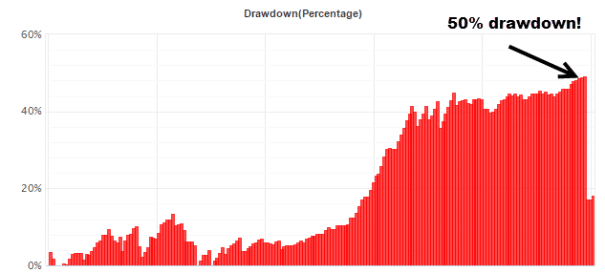 The returns you get when you don't have an edge but a good risk management…
The returns you get when you don't have an edge but a good risk management…
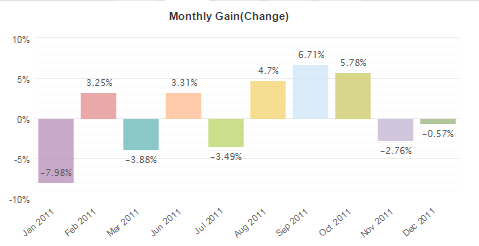 At this point, most traders would have thrown in the towel.
At this point, most traders would have thrown in the towel.
I mean, who would continue trading after spending thousands of hours at it only to lose more money than he started. It's a losing proposition!
But the stubborn me refuse to give up, always believing that I am one step closer each day.
And know what's the funny thing? I graduated with first-class honors but failed at trading. So it is true that even if you have a degree, you may not be a profitable trader.
This had to be my darkest days in trading when the statistics stared right in my face.
I followed my trading plan religiously and adhere to my money management, still, it wasn't enough.
What should I do?
Fighting on
When I graduated from university I knew there was only one career path for me, proprietary trading.
During one of the interviews, the interviewer made a statement that hit me hard.
He said, "if you've been trading your strategy for the last 1 year but it's not making you money, you better find a new strategy". That was a wake-up call for me.
It doesn't make sense to stick to the same strategy throughout the years, firmly believing you have an edge when clearly the result speak otherwise. I knew I had to let it go.
Shortly after I was accepted into their proprietary trading firm, my journey to professional trading began.
I first started out scalping the futures market and doing arbitrage across inter-related markets.
Within 6 months I knew it was not something for me as I wasn't comfortable with the psychological aspect of scalping.
Albert Einstein said, "Insanity is doing the same thing over again and expecting different results".
It has been 4 years now and whatever trading strategies that I attempted to trade the markets clearly wasn't working. I had to do something about it before the fire in me dies out…
The reflection

Despite trying out so many trading strategies and none seems to work, there were important lessons behind it that would make me the trader I am.
And that I would like to share with you. This is solely my opinion and I could very well be wrong.
Indicators
Most indicators lag the market so it is difficult to enter at a good price. By the time the indicator has confirmed you would probably miss a chunk of the move.
Furthermore, confirmation from an indicator does not necessarily increase your win rate, thus, I stopped using indicators for trade confirmation.
Instead, I use indicators to allow me to identify support & resistance, and gauge the volatility of the markets.
"Price action" trading
This has to be the most popular trading approach among retail traders due to its fantastic internet marketing.
Because of its popularity and the herd mentality, it was very hard for me to let this strategy go.
I kept telling myself this has to be the way to trade and the only way to make money. And I'm wrong once again.
The biggest problem I faced with price action trading was waiting.
I was always waiting for the price to come to my level, and then form a reversal pattern before initiating a trade. And often price doesn't do that and continues moving in my intended direction.
Looking back right now, I realized there's more to "price action" trading than just Support & Resistance, Pinbar & Engulfing patterns. You can look at the volatility of the markets, the size of candles and much more to give you a feel into the strength and weakness of a market.
That being said, I did learn a lot from "price action" trading. I was trained to draw support & resistance, understand confluence and to be patient, really patient.
Harmonic Patterns
What can I say? These are the most beautiful chart patterns I've come across, no doubt about it.
I was seduced by this trading strategy due to the high winning rate (70% from what was being claimed) and making my charts look like "I know what I'm doing".
However, one of the problems I encountered was the subjectivity of drawing these patterns which constantly makes me doubt myself.
Nonetheless, the biggest takeaway I had was identifying good risk to reward ratio which allows me to be wrong more than half the time and still makes money.
The turning point
There is one quote that kept propelling me forward and to be open to constant learning.
There is no such thing as failure, only feedback.
After 4 years of trying out different trading strategies, I've gathered feedback to know what works and what doesn't. At the same time, I learned more about myself as a trader and started having an idea what kind of trading strategy would suit my personality.
Here are some of the traits I learned about myself:
1) I wanted to be in the markets when it is trending strongly
2) I wanted to be systematic with less room for discretion
3) I can accept being wrong most of the time
4) I am patient and discipline
When I understood my trading psychology better, that's when I had X-Ray vision to see which are the trading strategies that would fit my personality.
It is not long later that I met my wife, trend following.
But is it a good marriage?
The trend follower
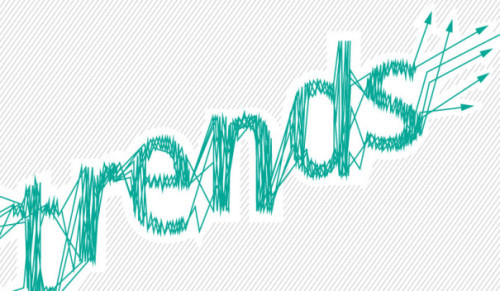
Initially, my first impression of Trend Following was simply trading with the trend. But as I read more books and studied research papers, I realized it is much more than that.
As a trend follower, there are 5 distinct traits that make it stand out from the crowd
The 5 traits are:
1) Trend follower does not predict where the market is heading
2) Trend follower has low winning %
3) Trend follower has no profit targets
4) Trend follower trades all markets
5) Trend follower buys high and sell low
After being a losing trader for 4 years, it took me 6 months to make back everything and more.
The returns you get when you have an edge and a good risk management…
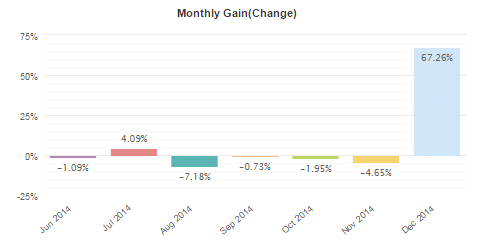
It felt darn good when I saw my account back into the green and growing after what seems like forever.
To me, it is not the end but the beginning of a life-long career in trading.
Conclusion
If you're reading this and struggling to be a profitable trader, then I want to tell you that it can be done.
Yes, the journey is tough, the obstacles are huge and the heat is on. But you are not powerless.
You have a mighty weapon called discipline and a protective shield called perseverance which will see you through the fire and the storm.
Still, if you are having a hard time trying to improve your trading, leave a comment and I'll be glad to help you out.
So, what is your story?
I've more than 500 trades that hit my stop loss. I've lost 50% of my trading capital. More than 30 times I thought I will hit a home run only to be stopped out. I've failed over and over again in trading. And that is why I succeed. – Rayner Teo
Source: https://www.tradingwithrayner.com/how-i-become-successful-in-trading/
0 Response to "Part Time Trading Made Easy Paul Singh"
Post a Comment